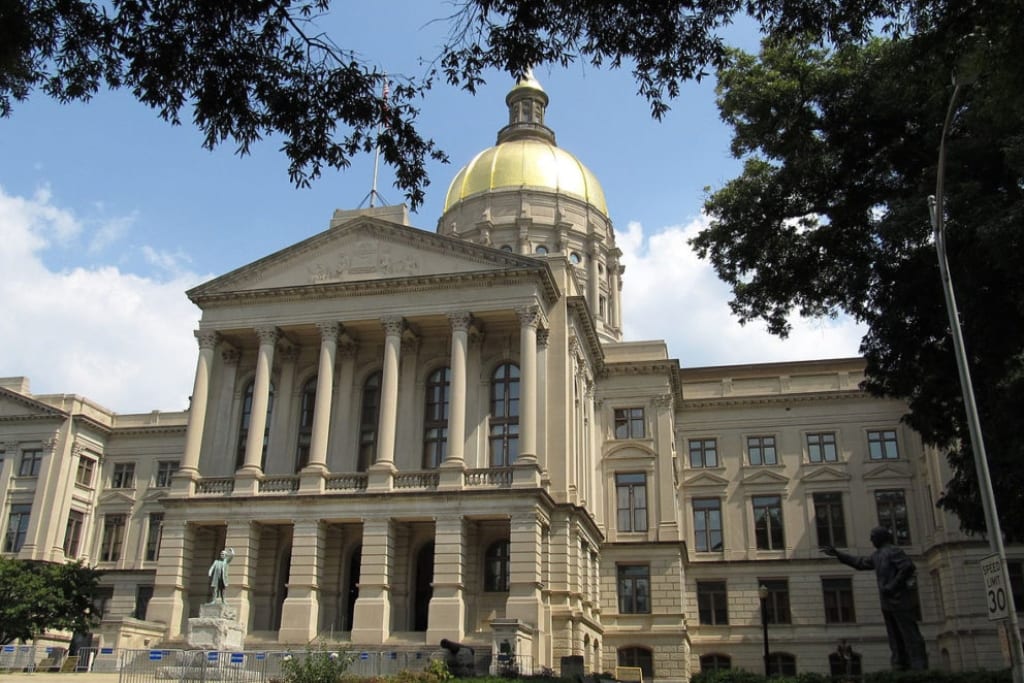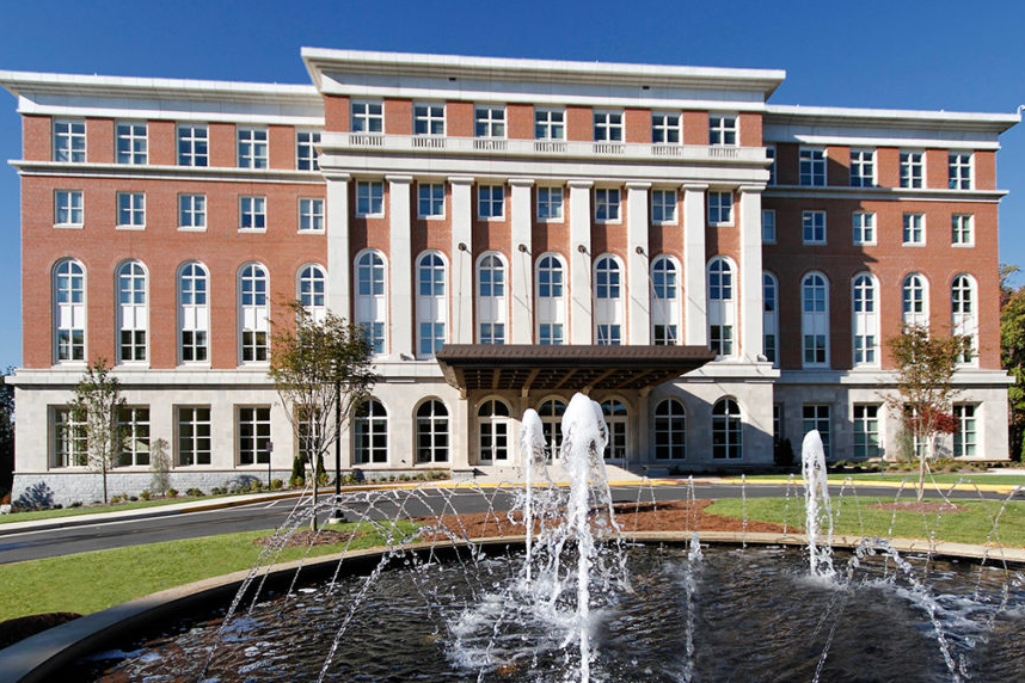
Georgia State Capitol Building.
ATLANTA (BP) — As Georgia’s General Assembly continues its month-long push to pass a Religious Freedom Restoration Act (RFRA), a judge has ruled Utah’s RFRA protects a religious center’s practice of using illegal psychedelic mushrooms.
Members of Georgia’s Republican-majority House Judiciary Committee mustered the votes to pass the RFRA bill on March 26, a week after two Republicans joined Democrats in blocking the measure. The move positions the measure for a full House vote before the General Assembly adjourns on April 4, the Atlanta Journal-Constitution reported on March 26.
Georgia’s bill prevents the government from substantially burdening an individual’s exercise of religion, unless doing so benefits a compelling government interest and conforms to the least restrictive means possible. Persons burdened in violation of the act may seek judicial relief against the government, and the bill would repeal all laws or parts of laws conflicting with it.
Mike Griffin, a public affairs representative with the Georgia Baptist Mission Board, was among those who have spoken in favor of the measure designed to reinforce federal-level religious freedom protections at the state level, the bill’s author Sen. Ed Setzler has said.
Griffin, citing no examples of the bill’s need, said at a House committee hearing last week that, “My point is, you want to put up a sprinkler system before you have a fire,” the Journal-Constitution reported.
Georgia’s Senate passed the bill on March 4.
Meanwhile in Provo, Utah, the founder of a Singularism entheogenic religious center is suing law enforcement under that state’s RFRA for the right to practice that center’s practice of using psychedelic mushrooms, which are otherwise illegal in the state.
District Judge Jill N. Parrish has granted the center’s founder Bridger Lee Jensen a preliminary injunction ordering law enforcement to return the center’s mushrooms and religious literature as the case works its way through the courts, according to lexology.com.
“Our nation was built on an ‘essential commitment to religious freedom,’” Jensen’s group wrote in a March 17 press release quoting Parrish’s ruling. “For that guarantee of religious liberty to mean anything, the laws must protect unfamiliar religions equally with familiar ones, both in design and in practice.
“In this litigation, the religious-exercise claims of a minority entheogenic religion put the State of Utah’s commitment to religious freedom to the test.”
The Utah case is about more than Singularism, Jensen said, but about “reaffirming fundamental religious freedoms and ensuring that constitutional protections apply equally to all faiths. The law is clear: the government cannot selectively enforce religious protections or disregard them when faced with a belief system it does not understand.”
Singularism describes itself as a centuries-old entheogenic spiritual practice that “guides individuals toward profound insights, authentic connections, and lasting change.”
RFRAs have been passed in at least 29 states, most recently on March 6 in Wyoming.
Georgia would become the 30th state to pass such a bill, which mirrors the federal RFRA signed into law by President Bill Clinton in 1993.
Georgia Democrats, and some Republicans, have said the current version of the bill has no measures to protect minorities from discrimination, while proponents of the bill say it shields religious groups from bias.
Georgia’s General Assembly passed an RFRA in 2016, but Gov. Nathan Deal vetoed the measure.
(EDITOR’S NOTE — Diana Chandler is Baptist Press’ senior writer.)


